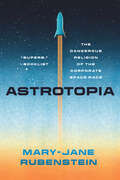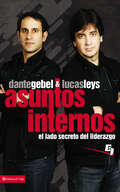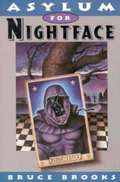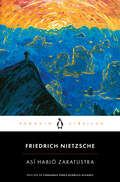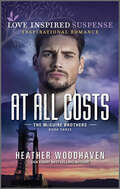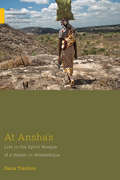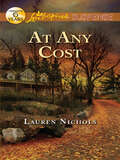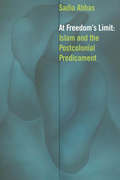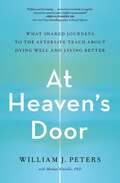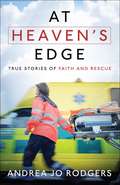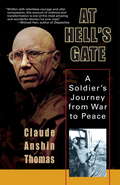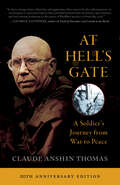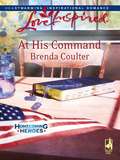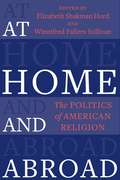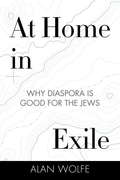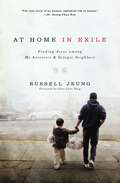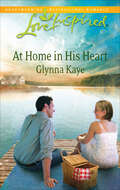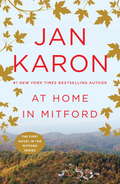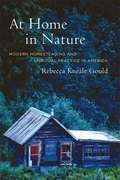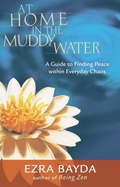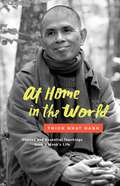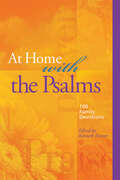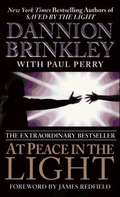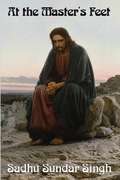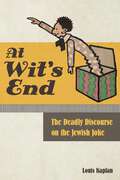- Table View
- List View
Astrotopia: The Dangerous Religion of the Corporate Space Race
by Mary-Jane RubensteinA revealing look at the parallel mythologies behind the colonization of Earth and space—and a bold vision for a more equitable, responsible future both on and beyond our planet. As environmental, political, and public health crises multiply on Earth, we are also at the dawn of a new space race in which governments team up with celebrity billionaires to exploit the cosmos for human gain. The best-known of these pioneers are selling different visions of the future: while Elon Musk and SpaceX seek to establish a human presence on Mars, Jeff Bezos and Blue Origin work toward moving millions of earthlings into rotating near-Earth habitats. Despite these distinctions, these two billionaires share a core utopian project: the salvation of humanity through the exploitation of space. In Astrotopia, philosopher of science and religion Mary-Jane Rubenstein pulls back the curtain on the not-so-new myths these space barons are peddling, like growth without limit, energy without guilt, and salvation in a brand-new world. As Rubenstein reveals, we have already seen the destructive effects of this frontier zealotry in the centuries-long history of European colonialism. Much like the imperial project on Earth, this renewed effort to conquer space is presented as a religious calling: in the face of a coming apocalypse, some very wealthy messiahs are offering an other-worldly escape to a chosen few. But Rubenstein does more than expose the values of capitalist technoscience as the product of bad mythologies. She offers a vision of exploring space without reproducing the atrocities of earthly colonialism, encouraging us to find and even make stories that put cosmic caretaking over profiteering.
Asuntos Internos: El lado secreto del liderazgo (Especialidades Juveniles)
by Dante Gebel Lucas LeysDos de los más influyentes líderes contemporáneos nos comparten sus secretos jamás contados acerca del liderazgo y la misión que Dios les entregó. Dante Gebel y Lucas Leys se unen por primera vez en un libro, para hablar explícitamente del liderazgo actual, abrir sus corazones con experiencias secretas y compartir ideas de cómo debe ser el liderazgo del futuro. Este es un libro de gemas y tesoros que te ayudará a sincerarte y redescubrir el propósito que debe tener tu liderazgo, así como la responsabilidad que Dios nos dio de influir en las nuevas generaciones.
Asylum for Nightface
by Bruce BrooksA deeply spiritual seventeen-year-old takes a radical step to save himself from the fanaticism of his born-again Christian parents.
Así habló Zaratustra
by Friedrich NietzscheLa obra capital del filósofo más influyente del siglo XIX Introducción de Fernando Pérez-Borbujo ÁlvarezTraducción de Juan Carlos García-Borrón Obra capital de Friedrich Nietzsche, Así habló Zaratustra recrea los trabajos y las palabras del profeta persa Zaratustra en el momento en que desciende de las montañas para revelar ante el mundo que Dios ha muerto y que el Superhombre ha de ser su sucesor. Con un discurso de gran intensidad que combina la ética, la narración y la poesía, Nietzsche sostiene que el sentido de la existencia no se encuentra en las viejas ideas religiosas ni en la sumisión a los amos, sino en una fuerza vital todopoderosa que puede identificarse con una nueva forma de ser libre. La presente edición, a cargo de Fernando Pérez-Borbujo Álvarez, experto en el autor y profesor de filosofía de la Universidad Pompeu Fabra, cuenta con una magnífica introducción sobre la vida y obra de Nietzsche y un aparato de notas que ayuda a la cabal comprensión del texto. Sobre la obra:«El mejor libro de Friedrich Nietzsche y uno de los textos de referencia de todo el pensamiento ético, filosófico y religioso de los últimos casi dos siglos. Un libro hermoso, poético, lleno de imágenes y poderosísimas reflexiones».Fernando Pérez-Borbujo Álvarez
At All Costs (The McGuire Brothers)
by Heather WoodhavenShe thwarted a kidnapping, and now she's on borrowed time in this thrilling story previsoulsy published as Countdown.When Rachel Cooper witnesses the abduction of her neighbor&’s young twin sons, she springs into action to save them. But now the kidnappers are after her…and her only hope of survival is relying on their widowed single father, James McGuire. A weapon has been planted on a satellite James&’s company is ready to launch, and as the systems specialist, it&’s his job to stop it. But someone is set on keeping James from preventing the scheduled takeoff—and they&’ll use anyone close to him as leverage.
At Ansha's: Life in the Spirit Mosque of a Healer in Mozambique (Medical Anthropology)
by Daria TrentiniAt Ansha's takes the reader inside the spirit mosque of a female healer in Nampula, northern Mozambique. It is here that Ansha, a Makonde spirit healer, heals the resisting ailments of her patients, discloses pieces of her story of affliction and healing, and engages the world outside her mosque. We come to know Ansha’s experiences as revolutionary and migrant, her religious trajectories, family, the healers who cured her, the spirits who possessed her, and her declining health. We follow Ansha’s shifts in her life and work in the mosque as these intersect with the visible and invisible borders of Mozambique and of its fraught history. Confronting events in her life and in the mosque between 2009 and 2016, Ansha invites us to make meaning with her, as we sit in her mosque, and engage with her family, spirits, friends, patients, and world.
At Any Cost
by Lauren NicholsA woman on the run from her ex-husband struggles to trust the handsome stranger she is falling in love with. Hiding from the past, jumping at shadows . . . Welcome to Jenna Harper’s life ever since her ex decided murder was the way to punish her for moving on. Yet Jenna survived—and continuous survival means eluding her attacker: no unnecessary risks, no credit cards and definitely no men. But despite her cautiousness, Jenna can’t deny her attraction to Beau Travis, the rugged carpenter fixing up her B and B. Neither can she ignore the recent mishaps that could blow her cover. Are the two connected? A troublemaker in high school, Beau was never the dependable type. Is he a suitor or a suspect?The answer could mean her life.
At Freedom's Limit: Islam and the Postcolonial Predicament
by Sadia AbbasThe subject of this book is a new “Islam.” This Islam began to take shape in 1988 around the Rushdie affair, the collapse of the Berlin Wall in 1989, and the first Gulf War of 1991. It was consolidated in the period following September 11, 2001. It is a name, a discursive site, a signifier at once flexible and constrained—indeed, itis a geopolitical agon, in and around which some of the most pressing aporias of modernity, enlightenment, liberalism, and reformation are worked out.At this discursive site are many metonyms for Islam: the veiled or “pious” Muslim woman, the militant, the minority Muslim injured by Western free speech. Each of these figures functions as a cipher enabling repeated encounters with the question “How do we free ourselves from freedom?” Again and again, freedom is imagined as Western, modern, imperial—a dark imposition of Enlightenment. The pious and injured Muslim who desires his or her own enslavement is imagined as freedom’s other.At Freedom’s Limit is an intervention into current debates regarding religion, secularism, and Islam and provides a deep critique of the anthropology and sociology of Islam that have consolidated this formation. It shows that, even as this Islam gains increasing traction in cultural production from television shows to movies to novels, the most intricate contestations of Islam so construed are to be found in the work of Muslim writers and painters.This book includes extended readings of jihadist proclamations; postcolonial law; responses to law from minorities in Muslim-majority societies; Islamophobic films; the novels of Leila Aboulela, Mohammed Hanif, and Nadeem Aslam; and the paintings of Komail Aijazuddin.
At Heaven's Door: What Shared Journeys to the Afterlife Teach About Dying Well and Living Better
by William J. PetersA groundbreaking, authoritative exploration—rich with powerful personal stories and convincing research—of the many ways the living can and do accompany the dying on their journey into the afterlife.In 2000, end-of-life therapist William Peters was volunteering at the Zen Hospice Project in San Francisco when he had an extraordinary experience as he was reading aloud to a patient: he suddenly felt himself floating in midair, completely out of his body. The patient, who was also aloft, looked at him and smiled. The next moment, Peters felt himself return to his body…but the patient never regained consciousness and died. Perplexed and stunned by what had happened, Peters began searching for other people who&’d shared similar experiences. He would spend the next twenty years gathering and meticulously categorizing their stories to identify key patterns and features of what is now known as the &“shared crossing&” experience. The similarities, which cut across continents and cultures and include awe-inspiring visual and sensory effects, and powerful emotional after-effects, were impossible to ignore. Long whispered about in the hospice and medical communities, these extraordinary moments of final passage are openly discussed and explained in At Heaven&’s Door. The book is filled with powerful tales of spouses on departing this earth after decades together and bereaved parents who share their children&’s entry into the afterlife. Applying rigorous research, Peters digs into the effect these shared crossing experiences impart—liberation at the sight of a loved one finding joy, a sense of reconciliation if the relationship was fraught—and explores questions like: What can explain these shared death experiences? How can we increase our likelihood of having one? What do these experiences tell us about what lies beyond? And, most importantly, how can they help take away the sting of death and better prepare us for our own final moments? How can we have both a better life and a better death?
At Heaven's Edge
by Andrea Jo RodgersVeteran EMT Andrea Rodgers has helped hundreds of people in their most vulnerable moments. Some of the victims faced their mortality head-on and cried out to God for help. Many experienced fleeting but life-changing connections with their first responders. Often these crises became unexpected sources of inspiration. Now Rodgers shares brief, real-life stories of heroic courage in the face of fear. In times of intense suffering, she has repeatedly witnessed signs of God's quiet intervention and healing presence. A man is resuscitated after Rodgers was able to repair a defibrillator--with her teeth! Several bystanders help rescue a young girl who is accidently buried alive in sand. Rodgers also experienced some lighthearted moments, including the time she arrived at the scene of a crime only to find herself in the middle of a mystery dinner theater. Experience the miracles, the life-and-death drama as you look at life from heaven's edge.
At Hell's Gate: A Soldier's Journey from War to Peace
by Claude Anshin ThomasIn this raw and moving memoir, Claude Thomas describes his service in Vietnam, his subsequent emotional collapse, and his remarkable journey toward healing. At Hell's Gate is not only a gripping coming-of-age story but a spiritual travelogue from the horrors of combat to the discovery of inner peace--a journey that inspired Thomas to become a Zen monk and peace activist who travels to war-scarred regions around the world. "Everyone has their Vietnam," Thomas writes. "Everyone has their own experience of violence, calamity, or trauma." With simplicity and power, this book offers timeless teachings on how we can all find healing, and it presents practical guidance on how mindfulness and compassion can transform our lives. This expanded edition features: * Discussion questions for reading groups * A new afterword by the author reflecting on how the current wars in Iraq and Afghanistan are affecting soldiers--and offering advice on how to help returning soldiers to cope with their combat experiences
At Hell's Gate: A Soldier's Journey from War to Peace
by Claude Anshin ThomasIn this raw and moving memoir, Claude Thomas describes his service in Vietnam, his subsequent emotional collapse, and his remarkable journey toward healing. At Hell's Gate is not only a gripping coming-of-age story but a spiritual travelogue from the horrors of combat to the discovery of inner peace—a journey that inspired Thomas to become a Zen monk and peace activist who travels to war-scarred regions around the world. "Everyone has their Vietnam," Thomas writes. "Everyone has their own experience of violence, calamity, or trauma." With simplicity and power, this book offers timeless teachings on how we can all find healing, and it presents practical guidance on how mindfulness and compassion can transform our lives. This expanded paperback edition features: • Discussion questions for reading groups • A new afterword by the author reflecting on how the current wars in Iraq and Afghanistan are affecting soldiers—and offering advice on how to help returning soldiers to cope with their combat experiences
At His Command
by Brenda CoulterIn one short month, cheerful army nurse Madeline Bright has become the darling of Prairie Springs, Texas. And if ex-pilot Jake Hopkins isn't careful, she might just conquer his heart. She's young, pretty and blithe-spirited. . . he's older and jaded. But being around Maddie brings back too many painful memories. Jake still feels guilty about failing to save Maddie's brother in an army helicopter crash years ago. So no matter how much Maddie wants to be in his life, for her own good, Jake can't allow that. He'll never have a normal, stable life. And sweet Madeline deserves nothing less.
At Home and Abroad: The Politics of American Religion (Religion, Culture, and Public Life #44)
by Elizabeth Shakman Hurd and Winnifred Fallers SullivanFrom right to left, notions of religion and religious freedom are fundamental to how many Americans have understood their country and themselves. Ideas of religion, politics, and the interplay between them are no less crucial to how the United States has engaged with the world beyond its borders. Yet scholarship on American religion tends to bracket the domestic and foreign, despite the fact that assumptions about the differences between ourselves and others deeply shape American religious categories and identities.At Home and Abroad bridges the divide in the study of American religion, law, and politics between domestic and international, bringing together diverse and distinguished authors from religious studies, law, American studies, sociology, history, and political science to explore interrelations across conceptual and political boundaries. They bring into sharp focus the ideas, people, and institutions that provide links between domestic and foreign religious politics and policies. Contributors break down the categories of domestic and foreign and inquire into how these taxonomies are related to other axes of discrimination, asking questions such as: What and who counts as “home” or “abroad,” how and by whom are these determinations made, and with what consequences?Offering a new approach to theorizing the politics of religion in the context of the American nation-state, At Home and Abroad also interrogates American religious exceptionalism and illuminates imperial dynamics beyond the United States.
At Home in Exile
by Alan WolfeAn eloquent, controversial argument that says, for the first time in their long history, Jews are free to live in a Jewish state--or lead secure and productive lives outside it Since the beginnings of Zionism in the twentieth century, many Jewish thinkers have considered it close to heresy to validate life in the Diaspora. Jews in Europe and America faced "a life of pointless struggle and futile suffering, of ambivalence, confusion, and eternal impotence," as one early Zionist philosopher wrote, echoing a widespread and vehement disdain for Jews living outside Israel. This thinking, in a more understated but still pernicious form, continues to the present: the Holocaust tried to kill all of us, many Jews believe, and only statehood offers safety. But what if the Diaspora is a blessing in disguise? In At Home in Exile, renowned scholar and public intellectual Alan Wolfe, writing for the first time about his Jewish heritage, makes an impassioned, eloquent, and controversial argument that Jews should take pride in their Diasporic tradition. It is true that Jews have experienced more than their fair share of discrimination and destruction in exile, and there can be no doubt that anti-Semitism persists throughout the world and often rears its ugly head. Yet for the first time in history, Wolfe shows, it is possible for Jews to lead vibrant, successful, and, above all else, secure lives in states in which they are a minority. Drawing on centuries of Jewish thinking and writing, from Maimonides to Philip Roth, David Ben Gurion to Hannah Arendt, Wolfe makes a compelling case that life in the Diaspora can be good for the Jews no matter where they live, Israel very much included--as well as for the non-Jews with whom they live, Israel once again included. Not only can the Diaspora offer Jews the opportunity to reach a deep appreciation of pluralism and a commitment to fighting prejudice, but in an era of rising inequalities and global instability, the whole world can benefit from Jews' passion for justice and human dignity. Wolfe moves beyond the usual polemical arguments and celebrates a universalistic Judaism that is desperately needed if Israel is to survive. Turning our attention away from the Jewish state, where half of world Jewry lives, toward the pluralistic and vibrant places the other half have made their home, At Home in Exile is an inspiring call for a Judaism that isn't defensive and insecure but is instead open and inquiring.
At Home in Exile: Finding Jesus among My Ancestors and Refugee Neighbors
by Russell JeungRussell Jeung’s spiritual memoir shares the joyful and occasionally harrowing stories of his life in East Oakland’s Murder Dubs neighborhood—including battling drug dealers who threatened him, exorcising a spirit possessing a teen, and winning a landmark housing settlement against slumlords with 200 of his closest Cambodian and Latino friends. More poignantly, At Home in Exile weaves in narratives of longing and belonging as Jeung retraces the steps of his Chinese-Hakka family and his refugee neighbors. In the face of forced relocation and institutional discrimination, his family and friends resisted time and time again over six generations. With humor and keen insight, At Home in Exile will help you see how living in exile will transform your faith.
At Home in His Heart
by Glynna KayeFinding Her Way HomeAs soon as she got married, Sandi Bradshaw wanted nothing more than to move out of Canyon Springs, Arizona. Then everything changed when her military husband was killed. Now, establishing a veteran's memorial for Keith has brought Sandi and her daughter back to his hometown. And face-to-face with the man who stood in the way of her marriage! Bryce Harding has a lot to prove to this same hometown crowd-and the very stubborn Sandi. But can they embrace the possibility that God might be giving them both a second chance at love?
At Home in Mitford: A Novel (A Mitford Novel #1)
by Jan KaronIt's easy to feel at home in Mitford. In these high, green hills, the air is pure, the village is charming, and the people are generally lovable. Yet, Father Tim, the bachelor rector, wants something more. Enter a dog the size of a sofa who moves in and won't go away. Add an attractive neighbor who begins wearing a path through the hedge. Now, stir in a lovable but unloved boy, a mystifying jewel theft, and a secret that's sixty years old. Suddenly, Father Tim gets more than he bargained for. And readers get a rich comedy about ordinary people and their ordinary lives.
At Home in Nature: Modern Homesteading and Spiritual Practice in America
by Rebecca Kneale GouldThis study of homesteading in America from the late nineteenth century to the present examines the lives and beliefs of those who have ascribed to the homesteading philosophy, placing their experiences within the broader context of the changing meanings of nature and religion in modern American culture.
At Home in the Muddy Water: A Guide to Finding Peace Within Everyday Chaos
by Ezra BaydaMay we exist like a lotus, / At home in the muddy water. / Thus we bow to life as it is. This verse is an important reminder, says Ezra Bayda, of what the spiritual life is truly about: the willingness to open ourselves to whatever life presents--no matter how messy or complicated. And through that willingness to be open, we can discover wisdom, compassion, and the genuine life we all want. In At Home in the Muddy Water, Bayda applies this simple Zen teaching to a range of everyday concerns--including relationships, trust, sexuality, and money--showing that everything we need to practice is right here before us, and that peace and fulfillment is available to everyone, right here, right now, no matter what their circumstances.
At Home in the World: Stories and Essential Teachings from a Monk's Life
by Thich Nhat Hanh Jason DeantonisThis collection of autobiographical and teaching stories from peace activist and Zen Master Thich Nhat Hanh is thought provoking, inspiring, and enjoyable to read. Collected here for the first time, these stories span the author's life. There are stories from Thich Nhat Hanh's childhood and the traditions of rural Vietnam. There are stories from his years as a teenaged novice, as a young teacher and writer in war torn Vietnam, and of his travels around the world to teach mindfulness, make pilgrimages to sacred sites, and influence world leaders. The tradition of teaching the Dharma through stories goes back at least to the time of the Buddha. Like the Buddha, Thich Nhat Hanh uses story-telling to engage people's interest so he can share important teachings, insights, and life lessons.From the Hardcover edition.
At Home with the Psalms: 100 Family Devotions
by Kenneth KremerLooking to use the Psalms for family devotions?First used as a hymnbook by Old Testament believers, the Psalms help Christian fathers, mothers, sons, and daughters express their faith today, no matter what blessings or troubles they encounter together. Each easy-to-understand devotion in At Home with the Psalms includes discussion prompts, valuable insights, and an encouraging prayer! At Home with the Psalms contains 100 interactive family devotions and will equip your whole family for the joys and sorrows of life, building up praise and thanks in your hearts through God’s Word.These devotions based on over 60 different psalms are best enjoyed with children in grades 3 through 8.
At Peace in the Light
by Dannion Brinkley Paul PerryThe author Dannion Brinkley continues the spiritual journey of his life and his near death experience.
At The Master's Feet
by Sadhu Sundar SinghSadhu Sundar Singh (1889-1929?) has been referred to as "the apostle of India." His Christian witness was one of faith, endurance, and supernatural activity. In 1922, his beloved classic At the Master's Feet was released. The book describes a vision, in which the disciple asks Jesus Christ, the Master, for wisdom and the meaning of various aspects of the Christian life. Also included in this edition is The Visions of Sadhu Sundar Singh, in which the Sadhu describes visionary experiences about heaven, hell, and everything in between.
At Wit's End: The Deadly Discourse on the Jewish Joke
by Louis KaplanCHOICE: OUTSTANDING ACADEMIC TITLEA scholarly and thought-provoking work that places Jewish humor at the center of a discourse about Jewish and German relations through most of the twentieth century.At Wit’s End explores the fascinating discourse on Jewish wit in the twentieth century when the Jewish joke became the subject of serious humanistic inquiry and inserted itself into the cultural and political debates among Germans and Jews against the ideologically charged backdrop of anti-Semitism, the Jewish question, and the Holocaust.The first in-depth study to explore the Jewish joke as a crucial rhetorical figure in larger cultural debates in Germany, author Louis Kaplan presents an engrossing and lucid work of scholarship that examines how “der jüdische Witz” (referring to both Jewish wit and jokes) was utilized differently in a number of texts, from the Weimar Republic to the rise of National Socialism, and how it was re-introduced into the public sphere after the Holocaust with the controversial publication of Salcia Landmann’s collection of Jewish jokes in the reparations era (Wiedergutmachung). Kaplan reviews the claims made about the Jewish joke and its provocative laughter by notable writers from a variety of ideological perspectives, demonstrating how their reflections on this complex cultural trope enable a better understanding of German–Jewish intercultural relations and their eventual breakdown in the Third Reich. He also illustrates how selfcritical and self-ironic Jewish Witz maintained a fraught and ambivalent relationship with anti-Semitism.In reviewing this critical and traumatic moment in modern German–Jewish history through the deadly discourse on the Jewish joke, At Wit’s End includes chapters on the virulent Austrian anti-Semitic racial theorist Arthur Trebitsch, the Nazi racial propagandist Siegfried Kadner, the German Marxist cultural historian Eduard Fuchs, the Jewish diasporic historian Erich Kahler, and the Jewish cabaret impresario Kurt Robitschek, among others. Shedding new light on anti-Semitism and on the Jewish question leading up to the Holocaust, At Wit’s End provides readers with a unique perspective by which to gain important insights about this crucial historical period that reverberates into the present day, when potentially offensive humor coupled with a toxic political climate and xenophobia can have deadly consequences.
